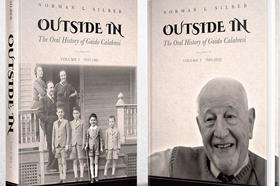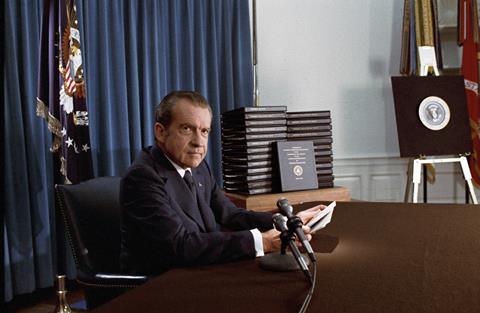‘Outsider’ who became a US legal luminary
Outside In: The Oral History of Guido Calabresi
Norman I Silber
£64, Oxford University Press
★★★★★
I have to admit I was not familiar with the name Guido Calabresi. I suspect it may be a name little known in the UK and Ireland outside our universities and law faculties. But it is the name of an eminent lawyer, academic and judge who has made a significant contribution to civic life and social justice in the US.

The family of Guido Calabresi (GC) fled to the US from fascist Italy in 1939 when GC was seven years old. Having excelled at school, GC was a Rhodes scholar at Oxford before studying law at Yale University where he became a professor in 1959. After serving as dean of Yale Law School from 1985 to 1994, GC was appointed, by president Clinton, as a Judge of the United States Court of Appeals for the Second Circuit, where he would serve until retirement in 2009.
This book consists of two hefty volumes running to more than 800 pages. Although it might be difficult to condense GC’s life into a single book, the principal reason for its size lies in the ‘oral history’ nature of the work. Each chapter is in two parts. The first is written as memoir in GC’s first-person voice. The second is commentary by the author, Norman Silber, in which GC’s recollections are verified and the historical and political contexts of key events explained. Silber believes that an inherent risk of oral history is the ‘embedding of nostalgia’, to which the commentary serves as a necessary counterweight.
GC tells some fascinating stories which include his family’s experiences of antisemitism, segregation and the America First movement in the 1940s. Later, GC worked as a clerk in the chamber of Hugo Lafayette Black, an associate justice of the US Supreme Court from 1937 to 1971. Black was nominated by president Roosevelt and was a supporter of the New Deal economics. GC’s instincts as a social democrat and reformer appear to have been sharpened in this role.

GC recounts the nomination of Robert Bork as a Justice of the US Supreme Court in 1987. GC had worked with Bork at Yale and was expected to testify in support of president Reagan’s nominee at the confirmation hearing. Bork had been solicitor-general of the US in 1972 when, during the ‘Saturday Night Massacre’, he was appointed attorney-general by president Nixon. Bork’s first act was to fire Archibald Cox, the special prosecutor who had obtained a court order that Nixon hand over the Watergate tapes. A campaign to oppose the nomination resulted in GC deciding not to testify. Ultimately, the Senate denied Bork’s confirmation.
The chapter on the 14th amendment and anti-discrimination law is particularly interesting. In it, GC explains eloquently how judges construe laws to avoid constitutional problems: ‘Interpreting a statute is different from construing it; and construing a statute is not the same as updating it. Interpretation is nothing but retrospective: one searches the text and relevant history to try to discover what the legislature meant to do at the time. But we all know that interpreting is not the only thing that courts do. Updating may be forbidden, but some situations require more from a court than interpretation; they require construction and so sometimes we construe.’
The term ‘outsider’ seems an unlikely one to describe a person with such an illustrious career. But GC is adamant that he remains an outsider: ‘And I believe that the most important part of my legal education and of my approach to law is that I am Italian, an immigrant, and a refugee.’ The dedication reads: ‘To Outsiders, and all who help and welcome them. G.C.’
Kevin McVeigh is a partner at Elliott Duffy Garrett Solicitors, Belfast































No comments yet